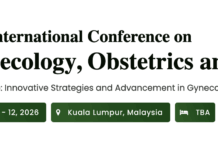The Indian government has given emergency use authorization to ZyCov-D vaccine, the world’s first DNA and needle-free vaccine against COVID-19.
The emergence of the SARS-CoV-2 virus has led to significant advancements in vaccine technology. More and more pharmaceutical companies designed vaccines based on non-traditional methods such as mRNA-based and vector-based vaccines. However, one company has taken things one step further by coming up with a DNA COVID-19 vaccine. Designed by Zydus Cadila, it is not only the world’s first DNA vaccine but also the first needle-free vaccine against COVID-19.
On Friday, the Indian government announced an emergency use authorization for the needle-free vaccine. Along with adults, the vaccine has also been approved for use in adolescents aged 12 to 18 years. The decision was based on results from the vaccine’s phase I and II trials. Cadila Healthcare tested the vaccine on more than 28,000 volunteers. Moreover, an interim study had found the vaccine to be safe and 66% effective at preventing COVID-19.
This is a historic milestone with ZyCoV-D, a product of Indian innovation becoming the world’s first DNA vaccine being offered for human use and supporting the world’s largest immunization drive. We are particularly happy that our vaccine will contribute to this fight against COVID-19 and enable the country to vaccinate a larger population especially in the age group of 12-18 years.
Pankaj R. Patel, Chairman, Cadila
In the press release, the company announced that it aims to produce 100 to 120 million doses of the vaccine per year.
How Does it Work?
Unlike Pfizer’s mRNA vaccine or Oxford’s vector-based vaccine, the ZyCov-D vaccine uses plasmid DNA to evoke an immune response. A plasmid is circular DNA containing genetic information for making the spike protein of the virus. These plasmids travel to the cells where they can replicate and produce the viral proteins. Thus, resulting in an immune response. Currently, the vaccine follows a three-dose regimen; one dose every 28 days.
Additionally, the DNA vaccine does not require a needle. Instead, the vaccine is administered intradermally using the needle-free system, Tropis®. This has three components: the injector, a needle-free syringe, and a filling adapter. A high-velocity fluid jet helps penetrate the skin and deliver the vaccine.
Moreover, DNA vaccines are generally cheaper, safe, and quicker to manufacture. According to Cadila Healthcare, the ZyCov-D vaccine can stay stable at 25 degrees Celsius for at least three months. Thus, making its storage and distribution easier. However, the vaccine does have a few drawbacks. In the past, DNA vaccines have shown lower efficacy in humans and greater failure rates. Moreover, the vaccine works once the plasmid DNA reaches the cell’s nucleus; a feat that’s quite difficult and can at times lead to lower efficacies.
Nevertheless, approval of the DNA vaccine is a great step in controlling the pandemic in a country where only 13% of the population has received both doses.
Source: Zydus Cadila




